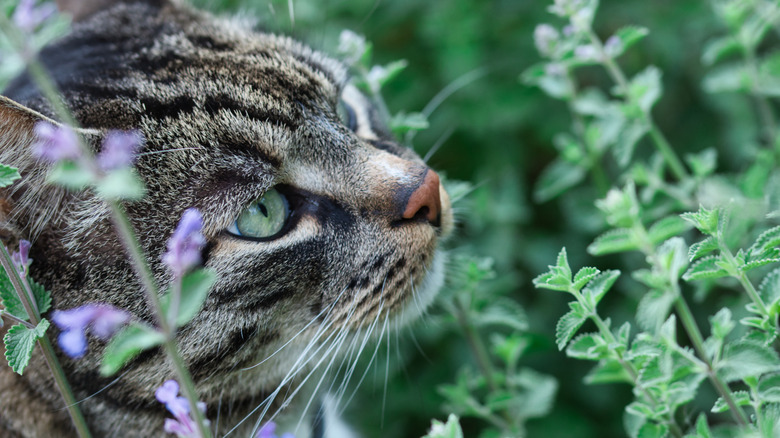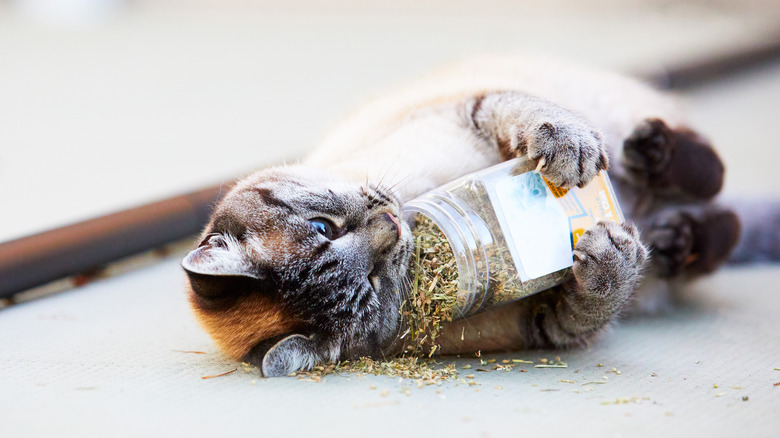The Real Reason Why Cats Love Catnip
Of all the treats in the world, catnip will forever be a feline's best friend. Referred to scientifically as Nepeta Catania (via Pet MD), the perennial herb is part of the mint family and is commonly found in nature across the United States. It's not the plant itself that most cats react to, but an active ingredient called nepetalactone. According to Purina, this essential oil is what gives cats the "high" they experience when exposed to catnip, which can result in a "full behavioral change" that includes sniffing, licking, head shaking, and body rolling.
Pet MD claims that nepetalactone mimics the famine sex hormones, which is why cats often display similar behaviors to a female cat in heat which includes signs of affection and relaxation, as well as playfulness and aggression depending on the nature of the cat. As Vox writes, when nepetalactone stimulates a cat's sensory neuron in the nose it triggers a chemical reaction in the brain leading to these bizarre behaviors.
Not all cats are a fan of catnip
Catnip may also have other properties that attract it to cats, according to Science Focus. Researchers in Japan and the UK found that the herb may even protect them from mosquitos and other parasites. They discovered this by introducing mosquitos into an environment where cats were given the option to rub themselves on nepetalactone-soaked paper. The research team observed that the cats who chose to do so were less likely to be attacked by the bugs than those felines who opted not to cover themselves in catnip.
As for why some of the cats chose not to rub this paper on their fur, it's because not all cats are fond of catnip. As Pet MD notes, studies have found that around 60% of cats react positively to the herb, and oftentimes their preference can be linked to a dominant trait in their genetic code.
For cats that aren't a fan of catnip, Silvervine can be used as a more potent alternative. Per Meowbox, this herb is widely used in Japan and China as it contains two attractants — nepetalactone and the additional actinide (via Pretty Litter).

